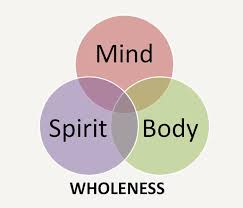I’VE
BEEN PONDERING PRAYER a lot lately. Maybe it’s because I’ve been doing a
lot of praying the last six months, agonizing over situations in my life or the
lives of my family that need deep intercession. (I’ve been using Stormie
Omartian’s great book, Praying for Your
Adult Children for a lot of those prayers.) Or maybe it’s because I’m doing
a beta reading (draft copy first-review) for an author who’s tackling
prayer—and the frustrations and joy of it—in his soon-to-be-released book. Or,
because a fellow Guideposts writer, Karen Barber, and I were talking about it
at our Savannah Guideposts Writers workshop last month—the importance of prayer
and how we can be surprised by it. (She’s written a great book about that
subject called Surprised by Prayer.)
Then there’s the MercyMe song “Even If” that I talked about last week—how we
hang on to God’s promises and Him even when He doesn’t answer our prayers the
way we’d like to have them answered.
And then, the morning I started the
draft for this post, what do you think the subject matter ended up being in my
Bible study time? You guessed it: prayer!
It’s a popular topic, isn’t it? The
best way to pray, how to pray so your prayers are answered, why doesn’t God
answer prayers, (he actually answers all of them), and other prayer points that
have filled volumes. People innately know that if they want to “talk” to God,
then they have to pray. And they’d like to know that they’re doing it “right”,
so their prayers have the most effect.
It was so important to Jesus’
disciples that they begged him to teach them how to pray. Even they must have
felt that their prayers were pretty anemic and fell short of the
best-way-to-pray mark.
So let’s start there. With Jesus’
model for prayer. We might learn some things we’d never noticed before. They’re
things that smacked me between the eyes while sitting in church several years
ago, our congregation corporately praying this prayer as we did every Sunday
morning.
In Matthew 6:9-13, we find what is
commonly referred to as the Lord’s prayer, although some theologians take issue
with that title by saying it really wasn’t The Lord’s Prayer. His prayer, a
pretty long one, can actually be found in John 17. The prayer in Matthew,
though, is how he taught the disciples
(and us) to pray, so we could refer to it as The Disciples’s Prayer Model.”
It’s a template to use, and it covers all of the basics, the most important
issues facing any of us today. And it’s only eleven lines long.
“Our Father in heaven.
Hallowed be thy name.
Your kingdom come.
Your will be done
On earth as it is in heaven.
Give us this day our daily bread.
And forgive us our debts,
As we forgive our debtors.
And do not lead us into temptation,
But deliver us from the evil one.
For Yours is the kingdom and the
power
and the glory forever.
Amen.”
The prayer starts off with a word
that always threw me off. Our. Not My
Father, but our. As in yours, mine,
and ours. I wondered why Jesus did that, and I always felt a bit silly saying
“Our” when I was praying alone. Sometimes I even changed it to “My” or started
in with “Father.”

But that Sunday I stopped praying
aloud to pray silently and listen to the collective voices of the congregation,
praying in unison. And it hit me. This isn’t just about me! (I actually kind of realized that before, but that day it
really hit me.) Not only am I in this as an individual; I’m in this with scads
of other people—millions on earth now and the millions who have gone before me.
Jesus could have said “My” but I’m wondering if it may have sounded
self-centered to a group of Jews who have more of a tribal, collective mind-set
than we individualistic Americans do. But it also must have stunned them,
because they weren’t used to calling God “Father” even though the Old Testament
does refer to Him that way numerous times.
This entire prayer is corporate, as
Jesus uses the word “us” over and over and the word “our.” And “we.” Not my,
me, or mine. It’s, as the Three Musketeers said, “All for one and one for all.”
Then the word “Father” grabbed me
again. Having a Father implies that you are a child, not in the childish sense
(although there’s plenty of that going around), but in the relationship sense.
And being a child implies that you are a dependent with a need. And guess who
fulfills that need? God. This is a permanent relationship between the two of
you, between God and us. And it demands all of the respect due it; and He
demands all of the respect due Him, as our Father and creator.
“In heaven” speaks of his dwelling
place. “Hallowed be thy name” tells us that He’s holy, sacred, and revered.
And, while He is our Father and friend, we need to treat Him with reverence. We
can call him “Daddy” but we must respect him as we respect a daddy.
“Your kingdom come” has us looking
into the future, when God sets up his righteous kingdom on earth and in heaven,
and agreeing that it will and should come.
Then we move into proclaiming that
God’s will is the will that takes precedence over all else—our will and
everyone else’s. It proclaims Him as the final authority. I think this is where
the prayer gets a little hairy for us, honestly, because this is where it hits
us the hardest. We so often want God to come alongside us, pat us on the back,
and assure us that He’s going to make sure our will is done. Regardless of what
He thinks and knows is best. It’s something we’ll wrestle with until the day we
pass from this side to the next. Humans are self-focused and selfish. We have a
narrow view of life that seldom expands outside of ourselves. “Your will be
done” turns it over to Him, and lets him have the final say.
And, naturally, His will should be
done in both heaven and on earth. Why? Because He is the King of the universe
and it’s rightful ruler. It’s like the memorable line from the movie “The King’s
Speech,” when Geoffrey Rush (playing speech therapist Lionel Logue) looks at
his student, Colin Firth, (who plays Prince Albert, the royal who is about to
ascend to the British throne as King George VI), and says, “My castle, my
rules.”
It’s all God’s castle, and He gets to
set the rules. Consequently, like any rules in a civilization, we need to
follow them or suffer the consequences.
Then Jesus gets to the nitty gritty
of our concerns when He tells us the first request (which doesn’t come until
the fifth line) should be for daily provision of bread. Nothing fancy; just the
basics. And this “bread” can be either the food kind or the spiritual.
Preferably both. But I think it’s telling that most of the time Jesus fed,
healed, and met physical needs first, before He started preaching and teaching.
Something for us to remember.
Then we move into asking God to
forgive our debts, or sins. To do that, we need to recognize what they are.
Simply throwing that request out doesn’t cut it. We need to own up to our
failures—acknowledge and confess them. Don’t know what your failures are? Ask
God. He’ll point them out to you.
And that request is followed by a
qualifier: “As we forgive our debtors.”
Got anyone you haven’t forgiven? Any
act of a perpetrator that you haven’t let go of? And I don’t mean that you have
to ignore the sin or have reconciled to the other person. Sometimes that just
isn’t going to happen.
If there is someone that you’re
still harboring resentment toward, then it’s time to let it go. For your sake. I think writer Anne Lamott
summed it up perfectly when she said, “Not forgiving is like drinking rat
poison and expecting the rat to die.”
The next line is a tough one to wrap
your head around—asking God to not lead us into temptation. A good way to
figure it out is to look at the Book of James that says God does not tempt any
man. So some scholars think a closer translation would be: “Leave us not in
temptation.” Please, God, once we are knee-deep in temptation, please don’t let
us languish there! Give us a way out! He does, and 1 Corinthians 10:13 says
that He will provide escapes for us. Big hint, though: We have to take the way
out.

Then the next line says, “But
deliver us from the evil one.” There’s that reference to Satan, the destroyer
of our souls, our witness, our lives. (Who actually looks like a gorgeous,
beguiling being rather than a red guy with a pitchfork.) We are to pray that
God delivers us from him. You only need to read the beginning of Job to learn
that he prowls around the earth looking for the faithful that he can assail. He
looks for our weaknesses and uses them against us. A lot of people say they
don’t believe Satan exits. Well, if Jesus believed he did, and says we ought to
pray to be delivered from him, then that’s good enough for me. He’s a threat we
need to take seriously. He’s a threat we need protection from.
Finally, we come full circle, right
back to where we started, with acknowledging that God is holy, He has the kingdom, and He has the power. Nice
bookends to all of the stuff focusing on us weak humans in the middle. It
starts with God—not us—and ends with God—not us.
And as I listened to the
congregation praying, the point was driven home to my head and heart that while
my salvation is individual, my working out of that faith is corporate. I’m part
of the Body of believers. We’re in
this together. I want my brothers and sisters to excel in their faith as much I
want to excel in it. I want all of us to glorify the Father!
And then I started to weep, thinking
what a beautiful sound it must be to the Lord—all of our voices sending up that
corporate prayer of recognizing Him as our Father, of acknowledging where his
throne is, calling him revered, publicly acknowledging His Kingdom and agreeing
that whatever He decides from Heaven should take place down here on earth.
Then, after addressing the important
things first, we are free to ask Him to provide our daily provisions of both
physical and spiritual food. And a request to forgive us, as we go about
forgiving others. (A distinct recognition of the importance of our
relationships with other people, and how they can affect us.) And then we get
to the crux of our issues—our weaknesses, our propensity to sin, to get
ourselves knee-deep (or deeper) in the cesspools of life. We ask Him to deliver
us from ourselves, and from the one whose goal is to destroy us.
And then, so we don’t forget whom
we’re addressing, we remind ourselves again of God’s position in the universe,
and ours. We start humbly and end humbly. And we lift up our hands together.
Sometimes I find myself going back
to that basic prayer, to re-focus my heart and my thoughts. And now I have no
problem saying “our”. It shifts the focus from “me” to “us.” There’s a feeling of
power and comfort in numbers, a feeling that I'm not in this race alone. That fact
makes me feel more secure and bonded to other believers, in my own church
congregation and around the world. It takes my American individualism and turns
it on its head.
And that makes me more like the
First Century Christians, who lived and survived more in community. That community that turned the world upside down.
And that, I think, is how God really
intended it.
Until next week!
Blessings,
Andrea
May you prosper in all things and be in health, just as your soul
prospers (3 John 2).
Photos courtesy of Google Images





















